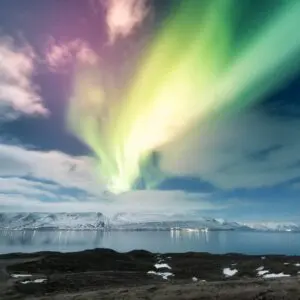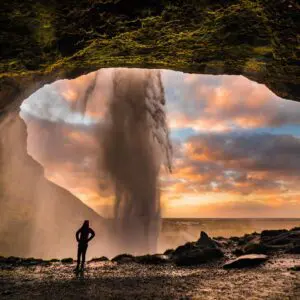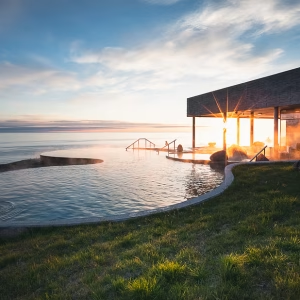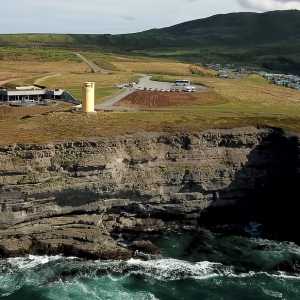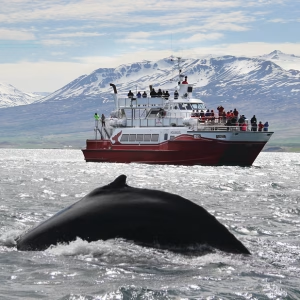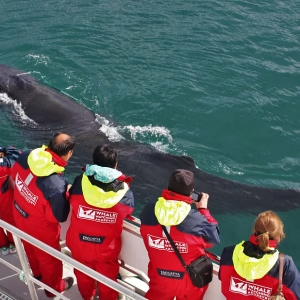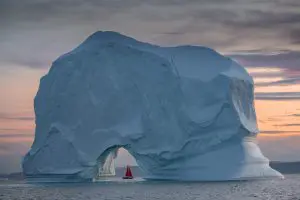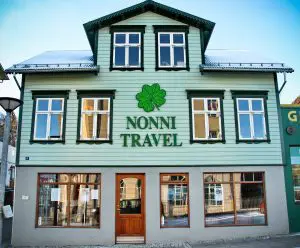North Iceland
North Iceland Tours
Explore North of Iceland
 North Iceland is where raw nature meets Icelandic tradition. There’s something deeply special about this part of the country for those who live there. Unlike the often-crowded South, the North offers a quieter, more authentic experience, ideal for those looking to explore Iceland off the beaten path.
North Iceland is where raw nature meets Icelandic tradition. There’s something deeply special about this part of the country for those who live there. Unlike the often-crowded South, the North offers a quieter, more authentic experience, ideal for those looking to explore Iceland off the beaten path.
Here, the landscapes shift dramatically, from snow-capped peaks to steaming geothermal fields. One of the region’s crown jewels is Lake Mývatn, a true natural wonder. The area around the lake is alive with geothermal activity: lava fields, mud pools, and steaming vents give the whole place an otherworldly feel. It’s also a haven for birdlife, especially during summer, when dozens of species nest in the area. Hiking around Mývatn is one of the best ways to soak in the scenery and the stillness of the North.
The region’s unofficial capital, Akureyri, is a vibrant town nestled at the base of Eyjafjörður fjord. It may be small, but it’s full of charm, colorful old houses, welcoming cafés, and a lively local culture. Akureyri is also the perfect base for adventures, whether you’re heading to Húsavík, the whale-watching capital of Iceland, or up into the wild highlands. Watching humpbacks breach just offshore is something you’ll never forget.
For those interested in history and culture, North Iceland doesn’t disappoint. Places like Glaumbær, with its turf-roofed farmhouses, offer a glimpse into how Icelanders lived for centuries. Small museums across the region keep the Viking spirit alive, sharing stories of the people who shaped this land long before tourism arrived.
Outdoor lovers will feel right at home here. In winter, skiing in places like Hlíðarfjall is a must. In summer, the endless daylight opens up trails through quiet fjords and lush valleys that few tourists ever find.
From Our Backyard: Insider Tips, Culture & Adventure
Why Coolcations Are the Future of Travel: Iceland, the Faroe Islands, and Greenland Should Top Your List!
Driving Iceland’s Ring Road: Everything You Need to Know Before You Go
Velkomin!
A Local Guide for Self-Drive Itinerary: 7, 10, and 14-Day Road Trips
Most Common Questions About North Iceland
What are the best tours to take in North Iceland?
Some of the most popular tours in North Iceland include Lake Mývatn geothermal tours, whale watching from Húsavík, Diamond Circle day trips, and Super jeep tours to the Highlands. Each offers a unique look at the region’s volcanic landscapes, wildlife, and natural wonders.
When is the best time to visit North Iceland for tours?
The best time for most North Iceland tours is from June to September, when roads are open and the weather is mild. Winter offers an entirely different experience, ideal for Northern Lights tours, snowmobiling, and ski adventures.
Are whale-watching tours in Húsavík worth it?
Absolutely. Húsavík is renowned as the whale-watching capital of Iceland, boasting high sighting success rates for humpback whales, minke whales, and even blue whales during the summer months. Tours usually run from April to October.
What is the Diamond Circle, and can it be done in one day?
The Diamond Circle is a scenic route in North Iceland that includes Goðafoss waterfall, Lake Mývatn, Dettifoss (Europe’s most powerful waterfall), and Ásbyrgi Canyon. Guided day tours are available from Akureyri or Mývatn. However, a full day is required to see it all.
Can I see the Northern Lights in North Iceland?
Yes, North Iceland is one of the best places in the country for Aurora Borealis tours. From late September to April, the skies are dark and clear enough for regular sightings, especially in rural areas like Mývatn or Ólafsfjörður.
Are there geothermal spa tours in North Iceland?
Yes, popular geothermal experiences include the Mývatn Nature Baths, often called the “Blue Lagoon of the North,” and newer options like GeoSea in Húsavík, with ocean views and natural hot seawater.
What kinds of adventure tours are available in North Iceland?
Adrenaline seekers can join Super Jeep glacier tours, snowmobile trips, ice cave explorations, ATV rides, and even heli-skiing near Akureyri. These tours showcase the rugged and untouched nature of the region.
How do I get to North Iceland for a tour?
The easiest way is to fly from Reykjavík to Akureyri Airport and then join tours from there. Alternatively, you can drive the Ring Road (Route 1), which takes about 5-6 hours from the capital.
Are there small group or private tours available in North Iceland?
Yes, many local operators offer private tours or small-group experiences. These provide a more personalized touch, especially for photography tours, family travel, or those seeking flexible itineraries.
Is it possible to join glacier tours in North Iceland?
While the large glaciers are more accessible in the south, tours to remote glaciers and snowfields are available in the Highlands and the Tröllaskagi peninsula, often with super jeeps or snowmobiles departing from Akureyri or Dalvík.
What wildlife can I see on tours in North Iceland?
Aside from whales, North Iceland is home to Arctic foxes, reindeer, puffins (in summer), and a wide range of birdlife around Mývatn. Nature and wildlife tours highlight these lesser-seen animals in their natural habitat.
Are tours in North Iceland suitable for families?
Yes, many tours are family-friendly, including easy hikes, whale watching, horseback riding, and visits to natural hot springs. Tour guides are often happy to accommodate children and tailor experiences to their needs.
Do I need a 4x4 to explore North Iceland on my own?
While the Ring Road is paved, many popular sites (especially in winter) are best accessed with a 4×4 or by guided tour. For example, routes to Dettifoss and Askja are often closed to regular cars due to rough terrain.
How long should I stay in North Iceland to see the main attractions?
To fully experience the highlights, such as Mývatn, Húsavík, the Diamond Circle, and Akureyri, plan for at least 3 to 5 days. Longer stays allow for deeper exploration and better chances to see the Northern Lights or join weather-dependent tours.



